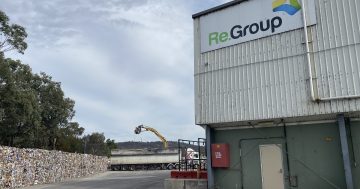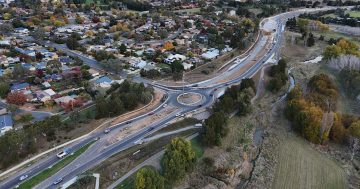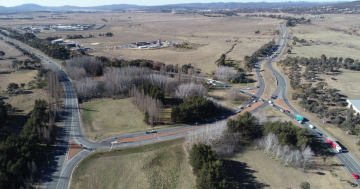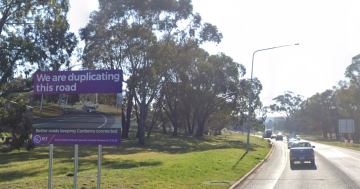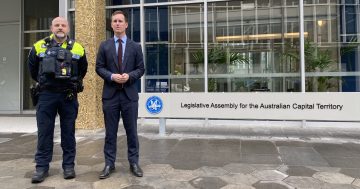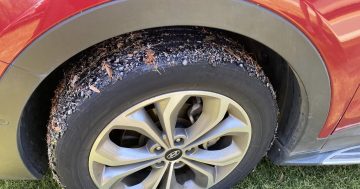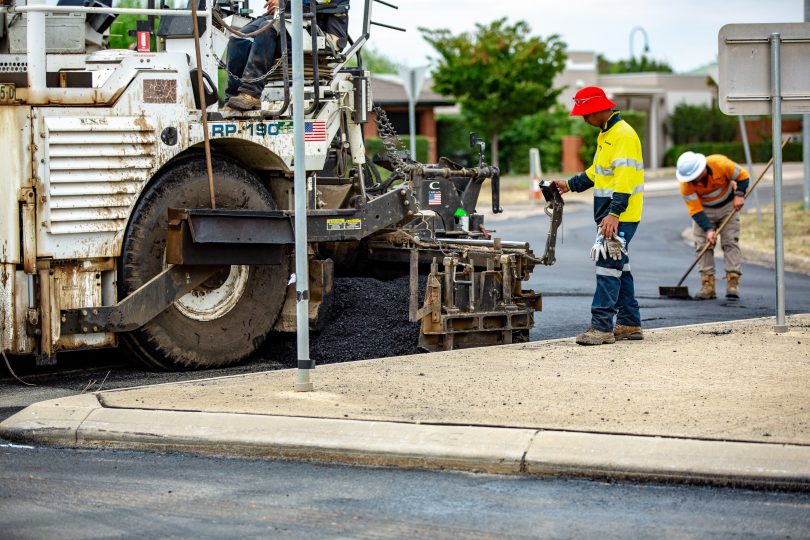
The ACT Government is trialling a new material on sections of Horse Park Drive and Gundaroo Drive called Plastiphalt. Photos: George Tsotsos.
Canberrans may soon be driving their cars on plastic bags, glass bottles and toner cartridges as the ACT Government trials a new type of asphalt made from an array of recycled materials.
The new asphalt product will use a mixture of recycled materials including soft plastics, used printer toner cartridges, crushed glasses and reclaimed asphalt materials, as it starts to pave the way towards a more sustainable ACT.
As part of the Government’s $16 million resurfacing program announced last October, ACT Minister for Roads Chris Steel said every tonne of the innovative asphalt product will contain around 800 plastic bags, 300 glass bottles, 18 used printer toner cartridges and 250 kilograms of reclaimed asphalt.
The recycled plastic has been sourced through the ACT Container Deposit Scheme, glass from the ACT’s kerbside yellow bin recycling system, and reclaimed asphalt from local roads.
The first trial is being conducted on a Gungahlin roundabout on Gundaroo Drive and another site in Casey, which will require about 1,000 tonnes of asphalt which include 80o,000 plastic bags and 300,000 glass bottles.
“If we are going to build a circular economy in Australia, then all governments have to act to establish markets for the re-use of materials like single-use plastic and glass for use in Government and private projects,” Mr Steel said.

The works are part of the Government’s $16 million resurfacing program announced last October.
“Roads are a great place to start and the ACT Government is looking at how we can require the use of ‘waste’ resources in procurement for roads across the ACT.
“This method of recycling has an economic benefit, as we don’t need to purchase as many new aggregates, but it is also better for the environment as it reuses existing materials that might otherwise end up in landfill.”
Mr Steel said the particular roundabout in Gunghalin was the perfect place to kickstart the trial due to being a heavy traffic area, which will test the pressure of the road surface.
“The new asphalt is designed to be stronger and more resistant to deformation. This will make it last longer, and allow it to better handle heavy vehicle traffic,” he said.
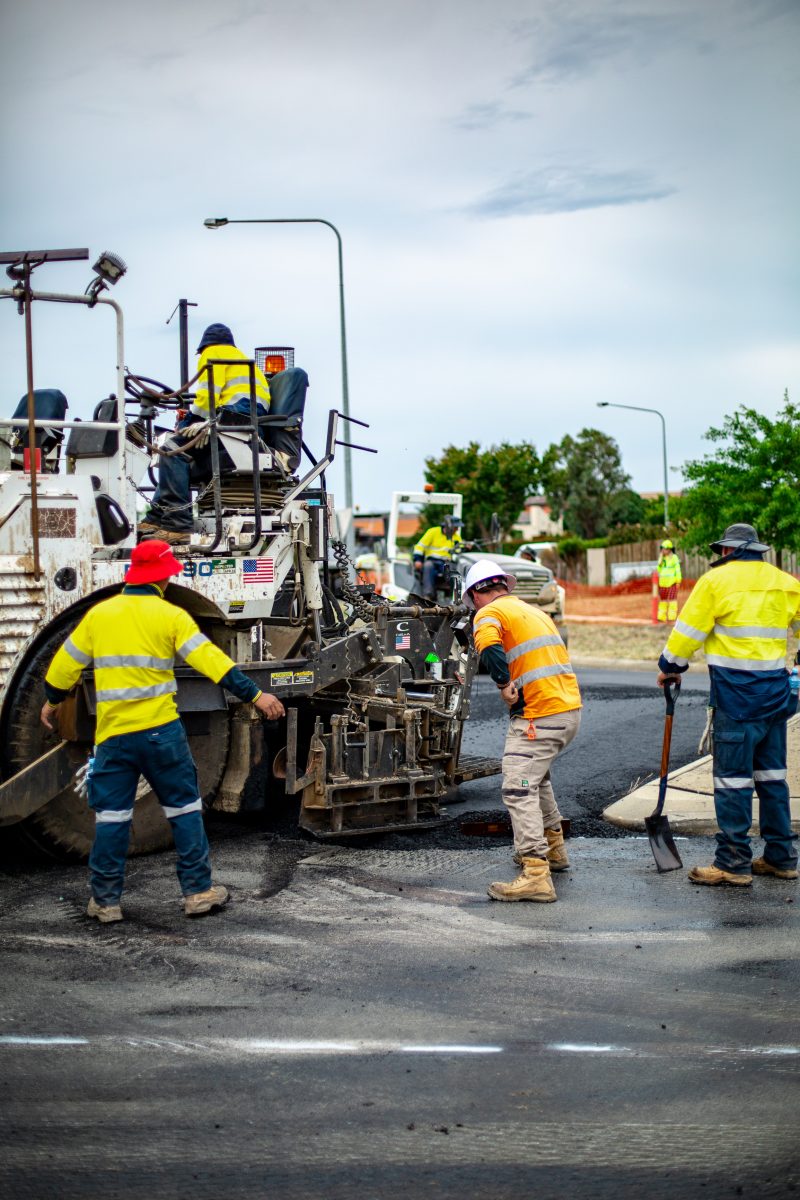
The new asphalt is designed to be stronger and more resistant to deformation.
“Along with the environmental benefits of removing these products from the waste stream and the reduced cost, this new asphalt product is also used to create a safe and long lasting road surface.”
These works will require temporary road closures, which occurred during the day today (5 March) and will continue tomorrow (6 March). Closures will take place from 9 am to 4 pm tomorrow as follows:
- Gundaroo Drive will be closed in both directions from Horse Park Drive to approximately 30 metres west of the Hollingsworth Street/Pallin Street intersection.
- Pallin Street will be closed in both directions from Swain Street to Gundaroo Drive.
- Hollingsworth Street will be closed in both directions from John Winter Street to Gundaroo Drive.












